How do humanitarian aid workers think and act?
This work focuses on how humanitarian organisations operate, including their members, affiliations, messages, practices and cultures. Aid to refugee, displaced, deported, exiled and interned populations plays a central role in humanitarian action both now and in the past. What types of aid are provided to internees and displaced persons? What kinds of obstacles and dilemmas does it face? What sorts of practical, political and ethical questions are raised by the participation of humanitarian organisations in population displacement and internment policies?
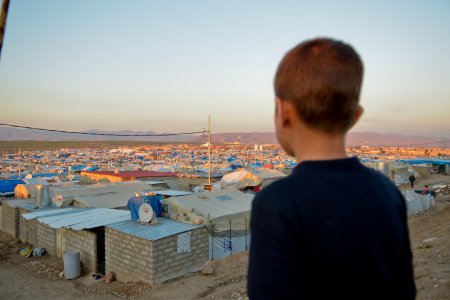 Pierre-Yves Bernard
Opinion
Pierre-Yves Bernard
Opinion
Syria: Breaking the De Facto Humanitarian Embargo against Rebel-Held Areas
03/19/2013While European Union members are debating the lifting of arms embargo on Syria, populations living in opposition held territories continue to be severed from desperately needed humanitarian aid. Yet, there is a controversy among aid agencies on the best ways to scale up relief activities in Syria.
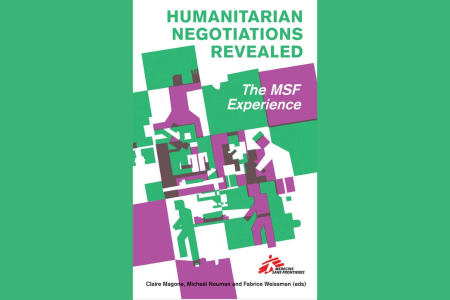 Book
Book
Humanitarian Negotiations Revealed: the MSF experience
02/17/2012From international NGOs to UN agencies, from donors to observers of humanitarianism, opinion is unanimous: in a context of the alleged ‘clash of civilisations’, our ‘humanitarian space’ is shrinking.
40 years helping the disregarded
12/11/2011Rony Brauman discusses several aspects and issues related humanitarian action as well as the good reasons to wish Médecins sans frontières a happy 40th anniversary.
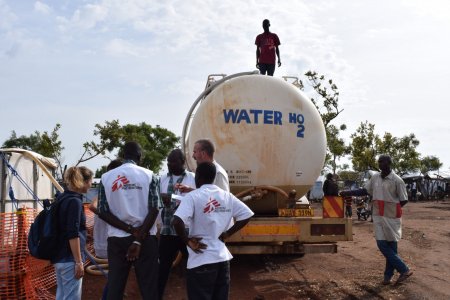 Charlotte Morris
Cahier
Charlotte Morris
Cahier
Is humanitarian water safe to drink?
07/04/2011Four hepatitis E epidemics have occurred in the areas in which we operate since 2000, prompting a reflection on the quality of the water produced and distributed to their populations by humanitarian organisations.
 Nick Owen
Cahier
Nick Owen
Cahier
Médecins Sans Frontières and the aftermath of war
01/10/2010This study started out looking at the shift to a post-conflict situation in Katanga; the intention was to describe how MSF’s sections negotiated the transition from war to post-war.
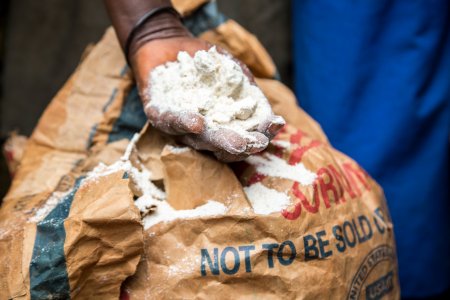 Louise Annaud
Cahier
Louise Annaud
Cahier
Food aid and the politics of numbers in Ethiopia
05/15/2008This study sheds light on the mechanisms producing the official data used by humanitarian aid decision makers. It views Early Warning Systems (EWS) as tools that facilitate consensus between the decision-makers involved in the allocation of food aid, enabling them to reach institutional agreements.
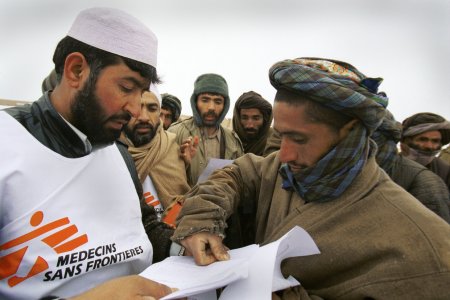 Tim Dirven
Cahier
Tim Dirven
Cahier
MSF and protection: pending or closed?
04/01/2008To embark upon a study of this theme is to enter a field strewn with contradictory representations linked to a highly sensitive issue – the limits of our responsibility – that has generated endless disagreements and debates on our “identity” and the existence or nonexistence of a role for MSF “beyond care”.
 Juan Carlos Tomasi
Opinion
Juan Carlos Tomasi
Opinion
Independence and Innovation, Look beyond the Magic of Words
03/01/2008Though independence and innovation are both highly valued concepts, Xavier Crombé questions in this article - thanks to MSF's experiences in Niger in 2005 - the possible interactions between them.
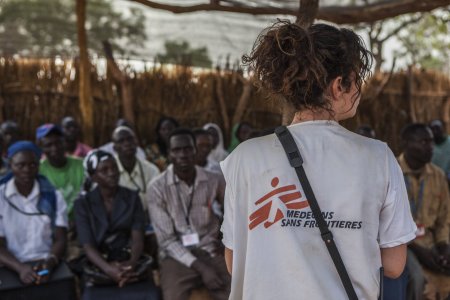 Yann Libessart
Cahier
Yann Libessart
Cahier
Humanitarian action in situations of occupation
01/01/2007This Cahier du CRASH by Xavier Crombé combines a study of the experience and positions of MSF vis-à-vis occupation contexts since the 1980s, and the minutes of a talk organised by the 'Fondation MSF' in January 2006 on "Humanitarian action in situations of occupation".
